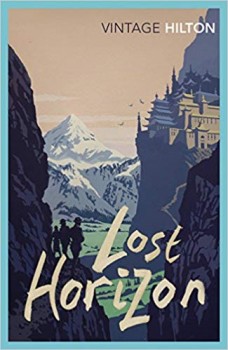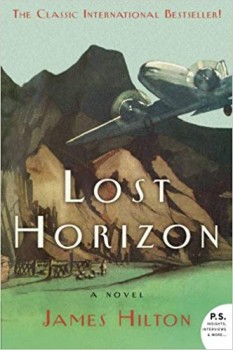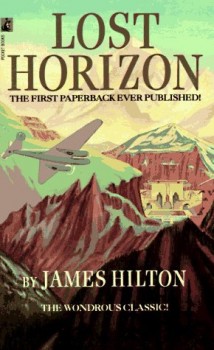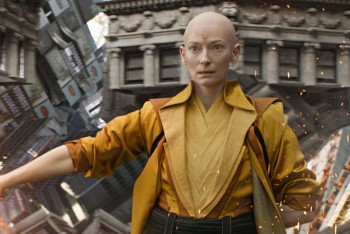Of Horizons and Common Sense Lost
 I recently got around to reading Gerry Conway’s introduction to Marvel’s Deadly Hands of Kung Fu Omnibus, Volume One for a forthcoming article. If there was a retroactive Astounding Award for Best Self-Loathing Writer of 2016, Mr. Conway would surely be a contender. There is nothing wrong with a writer looking back in some embarrassment over past work or even admitting their good intentions now seem naive from the vantage point of the present, but Mr. Conway apologizes so profusely for several thousand words one would be forgiven for thinking he committed a capital crime.
I recently got around to reading Gerry Conway’s introduction to Marvel’s Deadly Hands of Kung Fu Omnibus, Volume One for a forthcoming article. If there was a retroactive Astounding Award for Best Self-Loathing Writer of 2016, Mr. Conway would surely be a contender. There is nothing wrong with a writer looking back in some embarrassment over past work or even admitting their good intentions now seem naive from the vantage point of the present, but Mr. Conway apologizes so profusely for several thousand words one would be forgiven for thinking he committed a capital crime.
Truth be told, Mr. Conway’s unforgivable sin was his cultural appropriation in daring to cast people of color as heroes in his fiction of the 1970s. For you see, by some cruel twist of fate, he had the misfortune to be born to a white family and raised in a white neighborhood in the 1950s. Personally, I thought his having created diverse characters to appeal to minority readers and encourage tolerance among all readers in the decade following the Civil Rights movement is something he should be proud of, but apparently not so.
What’s more, all of his wailing and grinding of teeth is in the form of an introduction to a volume reprinting the work he is so ashamed of. One wonders what the purpose is of writers telling readers who just spent money buying reprints of their work how truly offensive those same works are. Given that Mr. Conway spent much of his career at Marvel Comics channeling Stan Lee’s voice, one wonders why Stan Lee isn’t likewise condemned for cultural appropriation for creating Black Panther and the Utopian nation of Wakanda. Of course, logical thinking isn’t advisable in a society that feeds off emotional reactions to maintain a constant state of division.
It will come as no surprise that my leisure time choices are to escape to the past with a good book, movie, or radio show. I prefer a world where adults acted like adults even with a world at war and most of the country at poverty level. I prefer a world where politicians conducted themselves with dignity in public and the media did its best to encourage respect for authority regardless of partisanship. It was certainly far from a perfect world, but judging from the art of its popular culture, it was a more polite world on the surface, at least.
 I recently read James Hilton’s 1933 novel, Lost Horizon. I was familiar with the restored 1937 film (directed by Frank Capra before his every cinematic touch became cringe-worthy) and at least one of the handful of radio dramatizations of the same that circulate among OTR fans. The book is noteworthy for having introduced Shangri-La as a concept and for being a rare example of the Lost World/Lost Race fantasy genre that aspires to literary significance rather than unsophisticated thrills. Hilton’s book succeeds in those aspirations, but it also fails in ways that were more problematic which, oddly enough, tie back to what troubled me about Gerry Conway’s hand-wringing over his being a white writer who created diverse characters.
I recently read James Hilton’s 1933 novel, Lost Horizon. I was familiar with the restored 1937 film (directed by Frank Capra before his every cinematic touch became cringe-worthy) and at least one of the handful of radio dramatizations of the same that circulate among OTR fans. The book is noteworthy for having introduced Shangri-La as a concept and for being a rare example of the Lost World/Lost Race fantasy genre that aspires to literary significance rather than unsophisticated thrills. Hilton’s book succeeds in those aspirations, but it also fails in ways that were more problematic which, oddly enough, tie back to what troubled me about Gerry Conway’s hand-wringing over his being a white writer who created diverse characters.
I spend a great deal of time grappling with the Yellow Peril as it directly impacts what I read and write. On a broader level, there is little in the way of adventure, thriller, or pulp fiction of the past that is not colored by the impact of colonialism. One doesn’t have to go far to find propaganda, bigotry, racism, and sexism. At the same time, the melting pot of the present (however scalding that pot may be at times) would never exist without the exposure to other cultures brought about as an unintended benefit of colonialism. I understand Asians finding the exotic Orient stereotypes of the past to be tiresome and even offensive. At the same time, the tantalizing glimpses of Asia, Egypt, the Middle East, or Africa are what makes so much of the adventure, thriller, or pulp fiction of the past appeal to readers then and now because it offers an enticing alternative to the humdrum West.
 This brings us to a pop literary work like Lost Horizon. It is not a Yellow Peril thriller. There is no adventure or violence as the book is largely an extended series of conversations between the lead character and a revolving cast of companions. Many of the concepts James Hilton has his characters wrestle with were of interest to me on a philosophical level, but at no point did magical Shangri-La, hidden away in a Tibetan valley among the Himalayas, ever come alive in Hilton’s hands. Worse still, when Hilton’s protagonist finally meets the High Lama, he learns he is a former Catholic priest from France. We only meet one Asian character in a substantial role and he quickly becomes irrelevant once the High Lama enters the story. We’re aware of various Tibetan porters, servants, and even willing sex slaves, but none of them are given personalities and only one other Asian character is even granted a name.
This brings us to a pop literary work like Lost Horizon. It is not a Yellow Peril thriller. There is no adventure or violence as the book is largely an extended series of conversations between the lead character and a revolving cast of companions. Many of the concepts James Hilton has his characters wrestle with were of interest to me on a philosophical level, but at no point did magical Shangri-La, hidden away in a Tibetan valley among the Himalayas, ever come alive in Hilton’s hands. Worse still, when Hilton’s protagonist finally meets the High Lama, he learns he is a former Catholic priest from France. We only meet one Asian character in a substantial role and he quickly becomes irrelevant once the High Lama enters the story. We’re aware of various Tibetan porters, servants, and even willing sex slaves, but none of them are given personalities and only one other Asian character is even granted a name.
By carefully avoiding the sensationalism of Yellow Peril stereotypes, Hilton gives us a Tibetan Utopia run by a French priest who embraced Eastern mysticism and quickly proved himself superior to the indigenous people. This is the sort of well-meaning gesture that Marvel bungled badly in re-casting Doctor Strange‘s Tibetan mentor as a white woman in their recent films. It is believed their upcoming Shang-Chi film recasts The Mandarin as a modern businessman in Western suit. Somehow this seems more correct to Marvel than giving global audiences a villain who draws on his country’s past as part of his rejection of the homogenization of the world market.
 All of this strikes me as anything but correct and a darn sight more offensive because it suggests Shangri-La’s High Lama or the MCU’s Tibetan lama need to be a superior Caucasian because an Asian in a traditional Asian role is somehow insulting even if the characters are written as educated, articulate, gifted, and honorable. Likewise, a white writer sticking to writing only white characters to avoid charges of cultural appropriation seems offensive because too often it results in a world that reverts to segregation out of fear of giving offense.
All of this strikes me as anything but correct and a darn sight more offensive because it suggests Shangri-La’s High Lama or the MCU’s Tibetan lama need to be a superior Caucasian because an Asian in a traditional Asian role is somehow insulting even if the characters are written as educated, articulate, gifted, and honorable. Likewise, a white writer sticking to writing only white characters to avoid charges of cultural appropriation seems offensive because too often it results in a world that reverts to segregation out of fear of giving offense.
Many people will, of course, disagree with my views, but somehow, in our quest to create a more egalitarian society, it’s resulting in art that suggests our eagerness to not repeat the mistakes of the past are creating a future that only values uniformity. I look around at these cultural signposts and I see this diverse society of ours has “woke” to a safe, but bland Wonder Bread world afraid of what will happen if people prefer French bread, Italian bread, Rye bread, Pita bread, Hominy grits, or rice. During the First World War, there was a popular song with the lyric, “How Ya Gonna Keep ’em Down on the Farm After They’ve Seen Paree?” What refrain will encapsulate our generation?
William Patrick Maynard is a writer and film historian. His commentaries have appeared on releases from MGM, Shout Factory, and Kino-Lorber. He is the authorized continuation writer for the Sax Rohmer Literary Estate and is the author of new Fu Manchu thrillers for Black Coat Press.
It’s very much a damned if you do dammed if don’t isn’t it? I have a pulpy Sword and Planet novel wth characters from Earth and I didn’t dare do anything diverse…